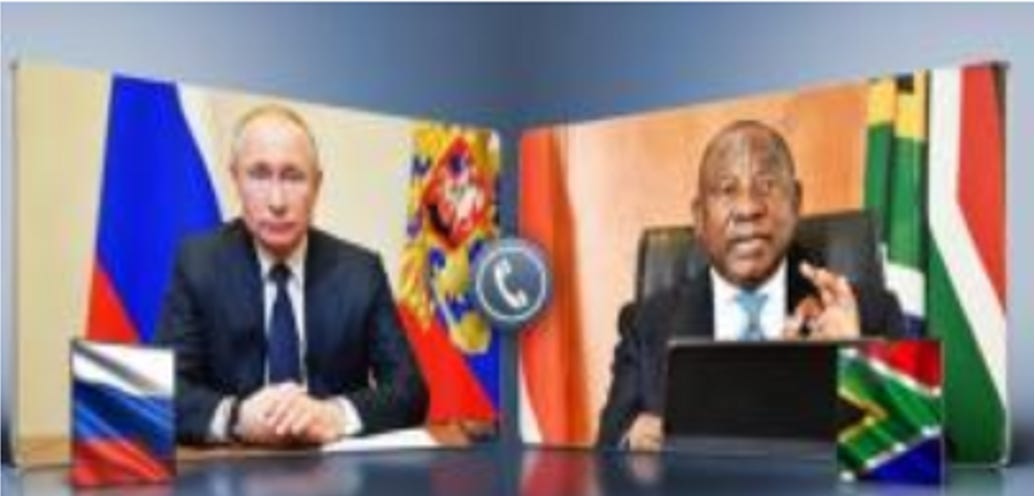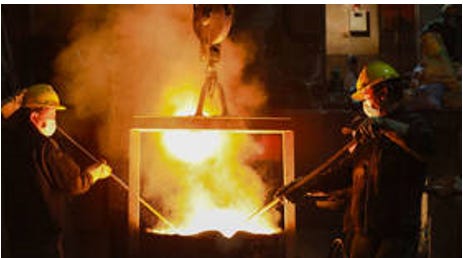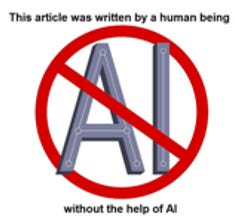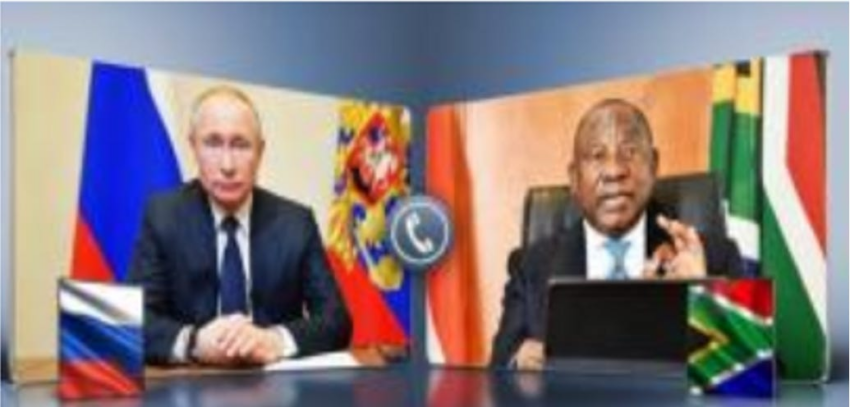“With a great moral issue involved, neutrality does not serve righteousness; for to be neutral between right and wrong is to serve wrong.” [Theodore Roosevelt]

President Cyril Ramaphosa received a briefing from Russian President Vladimir Putin on the outcome of his recent meeting with United States President Donald Trump in Anchorage, Alaska last Monday. In a statement The Presidency said President Putin expressed satisfaction with the manner in which his talks with President Trump proceeded and the emerging alignment on the peace process.
“President Ramaphosa appreciated the briefing from President Putin. The President underscored the need for more compromise on key issues for lasting peace to be attained between Russia and Ukraine. Both leaders once again pledged to maintain open lines of communication and to continue their cooperation on issues of bilateral interests,” the Presidency said.
South Africa has maintained its non-aligned position on the Russia-Ukraine conflict, calling on all parties to pursue negotiations as the only viable path to resolving the war. In June 2023, President Ramaphosa led a delegation of African leaders to Kyiv and St. Petersburg in a peace mission aimed at encouraging direct engagement between Russia and Ukraine. – SAnews.gov.za
At an earlier meeting, South African President Cyril Ramaphosa was treated with disdain, when President Donald Trump confronted his guest with images and video footage alleging “white genocide.” These images were subsequently determined to be of the Congo and erroneously attributed to South Africa.
HOW SOUTH AFRICA IS NAVIGATING WASHINGTON’S 30% TARIFF HIKE. When the United States slapped a 30% tariff on South African goods on August 7, the first instinct across the country was anger. Farmers were worried about unsold harvests, factory managers braced for cancelled orders, and unions warned of potential job losses.
Social media was ablaze with outrage, with one post on X summing up the sentiment: “How do we compete with the world’s biggest economy when they close the door on us?” But instead of trading fury for fury, Pretoria has opted for something harder: discipline. Within days, Cabinet signed off on a five-pillar response plan designed not just to survive the shock, but to use it as a push to rethink South Africa’s export strategy:
Talk, Don’t Shout. Rather than escalate, the SA government has doubled down on negotiation. A revised trade offer is already on Washington’s desk, addressing technical complaints flagged in the US Trade Representative’s 2025 report. Some of the progress is tangible. South Africa has finalised agreements on poultry, pork, and blueberries, with shipments expected through New Orleans, Savannah, and Norfolk ports in the coming weeks. These details matter: as one trade official quipped, “Containers moving do more for confidence than podium statements.”
Buy Time, Protect Jobs. Behind the diplomacy lies a safety net for businesses. An Export Support Desk is already assisting companies, while a new Localisation Support Fund and Export and Competitiveness Support Programme promise financing for working capital and equipment. Unusually, competition authorities are even preparing a block exemption to let exporters coordinate on logistics without breaking the law. It’s a temporary fix, but in a climate of soaring shipping costs, the ability to pool freight space could be the difference between keeping workers employed or cutting shifts.
Diversification is No Longer Plan B. For too long, South Africa has leaned too heavily on a handful of export markets. The US, though only about 4% of agricultural exports (R9.8 billion), has grown sharply since 2018, making Washington’s tariff sting harder. But Pretoria is moving fast to widen the net. Talks with China are at an advanced stage, with a deal on stone fruits (apricots, peaches, nectarines, plums, prunes) expected to be signed by September. First consignments could leave packhouses as early as the next harvest season.
And beyond Asia, the SA government is pushing for deeper integration under the African Continental Free Trade Area (AfCFTA), while maintaining ties with the EU and Gulf markets. As one analyst noted, “Diversification isn’t about bragging rights. It’s risk management. The more baskets you have, the less one broken handle ruins the whole harvest.”
Defend, But Play Fair. With tariffs disrupting normal trade flows, there’s a real risk of dumped goods flooding South Africa at cut-rate prices. Pretoria has pledged to use WTO-compliant tools like anti-dumping and safeguard measures to protect local producers.
This isn’t protectionism, but pragmatism. The goal is to keep factories and farms running while new markets open up, so when demand shifts, capacity is still intact.
Strengthen Local Demand. Finally, Pretoria is betting on its own backyard. Platforms like Shop Proudly SA and the Market Access Platform are meant to connect buyers with local suppliers quickly. Big retailers and public entities have been urged to set and publish local procurement targets, a small but important step for keeping smaller firms in business. For a packhouse in Ceres or a factory in Ekurhuleni, a steady local order book can mean the difference between surviving a quarter or shutting doors.
What Leaders Must Get Right. Business and government insiders agree on three priorities for the months ahead:
- Radical transparency – Publish a dashboard showing what’s been announced versus what’s actually live. Weekly updates can restore trust.
- Treat diversification as an investment case – resource labs, inspectors, and trade missions to unlock new protocols with urgency.
- Use the rules smartly – keep the block exemption narrow, temporary, and transparent, while ensuring trade remedies are ready if dumping surges.
It’s More Than Just Spin. Tariffs at this scale squeeze margins, unsettle contracts, and test leadership. But this time, South Africa’s response feels less like firefighting and more like strategy. The real proof won’t be in speeches, but in containers shipped, jobs retained, and markets opened. If the revised offer is acknowledged in Washington, China signs off on stone fruits, and US meat shipments land in local ports in the next few weeks, optimism will be more than wishful thinking, it will be strategy, in motion. As one Cape Town exporter put it: “We didn’t choose this fight, but maybe it’s the push we needed to grow stronger and less dependent.” Source https://www.joburgetc.com/business/south-africa-response-us-tariffs-2025/
However, Kenya now faces an economic crisis if the US follows through with its threat to revoke the African Growth and Opportunity Act (AGOA) trade deal; a reminder that South Africans and many African economies remain at the mercy of foreign powers. This is Africa’s current economic and political reality: systemic violence, natural resource extraction, and economic manipulation. There are negative actors like Boko Haram in Nigeria, Al-Shabaab in Somalia, and foreign security groups in Mozambique invoking similar images.
Africa’s enemies are armed with various types of weapons: missiles, foreign contracts, western narratives, and economic dependency. The expression “post-colonial” is mere rhetoric, for the reality is a crisis orchestrated financially by the IMF and perpetuated by the African Union’s deafening silence.
Africa must develop new relationships, not only with masters but with partners. Cooperation with China, Russia, India and Brazil is based on mutual respect and shared interest not dependency. Negotiated technology transfers, co-ownership of infrastructure, and the right to control its natural resources when BRICS can be a platform of liberation but only if African nations enter united in their goals of self-respect and mutual, not dependent relationships; South Africa is leading the charge.
Of equal importance is rethinking in thoughts and actions. Africa’s educational systems continue to use Western ideas to the detriment of indigenous knowledge. A dual curriculum is needed; one in which African languages, philosophies, history and political economy are presented along with the curriculum of the West.
The goal for Africa’s educational system should be to produce critical thinkers for Africa and not technocrats to serve Western interests. Africa is on the critical edge of change but Western solutions often mask the continued exploitation. ‘Green’ proposals like carbon markets, and offset mechanisms, permit Western polluters to profit while Africa bares the ecological burden. Ecological justice is rooted in land reform, water sovereignty, and African management not foreign agendas.
The African Union must cease its dormancy or pass into irrelevance through the strategic efforts of sovereign governments that are willing to fight for what is in Africa’s best interest. The continent of Africa should give its youth the basis for rejecting the rhetoric of “flight to the West” and foster the challenge of rebuilding their homeland with dignity. Only then can the African continent look towards a future of economic prosperity, cultural enrichment, and political freedom. Sources
- Economic reality https://www.globalresearch.ca/africa-orchestrated-dependency/5898333
- US insecurity https://www.globalresearch.ca/brics-multipolarity-us-insecurity/5896862
THE GLOBAL IMPACT. Krutham executive chairman Stuart Theobald said that a global economic slowdown is likely to hit South Africa far harder than the direct impact of the United States’ 30% tariff on its exports. Both disasters are attributed to the tariff and trade war being waged by US President Donald Trump since the start of the year, but it’s the global shock that may prove to be worse for South Africa than the direct hit itself. While the country will definitely feel the short-term impact of a 30% tariff on its exports, which has been in effect since August 7, the direct impact on the economy will be relatively small. This is a view that has been echoed by many economists who have crunched the numbers.
Most estimates put the direct economic impact on South Africa at around a third of a percentage point to GDP, which is marginal compared to some of the other knocks the country has suffered with load shedding, collapsing freight and logistics networks. Like many others, Theobald expects the short-term impact to be felt across affected industries, like the automotive and agricultural sectors.
Whilst not minimising the severity and harm done by the Trump tariffs, Theobald said there is “great uncertainty” around how permanent it will be. There are many moving parts, including government intervention, continued negotiation, pivots to other markets, and unpredictable shifts in the United States itself, in short, anything could happen. However, the one aspect that can’t be ignored is how the global economy is being impacted.
Theobald noted that overall the Trump’s tariff war has increased the average US tariff rate to 18.3%, from the 2.5% average before. “That will deal a major economic shock to the world,” he said, as tariffs suddenly jump to the highest level since 1934 in the middle of the Great Depression. This has restructured global trade almost in its entirety, and it won’t be without consequence. Source
- SA on the global issues https://businesstech.co.za/news/business-opinion/834780/warning-over-a-disaster-for-south-africa-worse-than-tariffs/?utm_source=everlytic&utm_medium=newsletter&utm_campaign=businesstech
SA’S AGRICULTURAL EXPORTS TO THE US DEMONSTRATES RESILIENCE DESPITE GLOBAL TRADE CHALLENGES. Agriculture Minister John Steenhuisen says South Africa’s increase in agricultural exports to the United States demonstrates remarkable growth and resilience in the face of significant global trade headwinds. According to recent data from Trade Map and analysis by the Agricultural Business Chamber of South Africa (Agbiz), South Africa’s exports have not only remained competitive, but have increased in the second quarter of 2025 to US$161 million, up by 26% from the same period in 2024.
Steenhuisen welcomed the performance but stressed the importance of examining the gains with a forward-looking perspective. “The figures speak for themselves. In the first quarter of 2025, South African agricultural exports to the US were US$118 million, up by 19% year-on-year. This growth is not merely a statistical anomaly, but a reflection of a bountiful harvest; a surge in high-quality produce, and the efficient operation of our ports,” the Minister said.
Leading export products include a variety of fruits such as citrus, grapes, apples, pears, as well as nuts and wine. The Minister said the recent imposition of a 30% tariff on South Africa’s exports by the US has underscored the urgent need to diversify the county’s export markets and enhance its competitiveness to mitigate the economic impact of losing preferential trade access. The results of the second quarter of 2025 also highlight how urgent it is to resolve the ongoing tariff talks with the US. The country’s capacity to gain steady, long-term access to this important market, continues to be a top priority.
“As we continue to engage in diplomatic negotiations and work towards a more favourable trade agreement, the focus remains on ensuring that our farmers and exporters can continue to thrive in the global marketplace, securing the future of our agricultural sector,” Steenhuisen said. SAnews.gov.za
ONE PROBLEM CREATED BY THE SOUTH AFRICAN POLICY OF NEUTRALITY is that it clashes and antagonises the American policy of global ‘full spectrum dominance’. This example illustrates the problem.
South Africa and Iran have pledged to strengthen bilateral military cooperation following a high-level meeting between defense officials in Tehran. The commander of the South African National Defense Force, General Rudzani Maphwanya, met with Iranian Major General Abdolrahim Mousavi for talks recently. Mousavi emphasised the capabilities of the Islamic Revolutionary Guard Corps, describing it as the “world’s largest anti-terrorism force.” He added that Iran is ready to share its extensive experience with South Africa, according to local media reports.
“The Armed Forces of Iran, including the Islamic Republic of Iran Army and the Ministry of Defense and Armed Forces Logistics, possess significant capabilities in various military, technical, and industrial fields. “These capabilities can be utilized in cooperation with the Armed Forces and the Ministry of Defense of South Africa to serve their mutual national interests and enhance regional and international security,” Mousavi stated.
Iranian Major General Amir Hatami also took part in the discussions, highlighting the ideological alignment between the two nations. “The Islamic Republic and South Africa have always supported each other and oppressed nations,” he stated. Hatami pointed to South Africa’s decision to file a case at the International Court of Justice (ICJ) against Israel over the ongoing war in Gaza as an example of such solidarity. The move, he said, would “go down in history.” General Maphwanya also acknowledged Iran’s longstanding support for South Africa’s struggle against apartheid, which he said created “a historical bond between the two nations.”
South Africa and Iran have long-standing ties, with Tehran supporting South African liberation movements. Iran cut official relations and imposed a trade boycott in 1979 over apartheid, but lifted all sanctions in January 1994, restoring diplomatic relations later that year after the first free, all-race general elections were held in South Africa.
READ MORE: South Africa issues statement on ICJ case against Israel. The two countries currently maintain embassies in Tehran and Pretoria. In recent years, they have deepened cooperation across energy and defense sectors. South Africa supported Iran’s accession to the BRICS group in January 2024, so the question remains:

- Why is BRICS+ suddenly running everything?
- https://www.rt.com/africa/622875-south-africa-iran-deepen-military-ties/
- US seeks clarity on SA’s Iran stance, expressing ‘great concern’ following Maphwanya trip https://www.news24.com/politics/us-seeks-clarity-on-sas-iran-stance-expressing-great-concern-following-maphwanya-trip-20250820-0552
COMING NEXT:
- BOOM’s Weekly Global Review Sunday, August 24, 2025 (Now on BOOM’s (Substack)
- The Financial Jigsaw Part 2 (53) – EU/NATO IN UKRAINE – Saturday, August 30, 2025
REFERENCES
- My Book: “The Financial Jigsaw” Parts 1 & 2 Scroll: https://www.researchgate.net/publication/358117070_THE_FINANCIAL_JIGSAW_-_PART_1_-_4th_Edition_2020 including regular updates.
- BOOM Finance and Economics Substack (Subscribe for Free) – also on LinkedIn and WordPress. Plus Covid Medical News Network CMN News and BOOM Blog — All Editorials (over 5 years) — BOOM Finance and Economics | Designed for Critical Thinkers — UPDATED WEEKLY (wordpress.com)

Click this link for the original source of this article.
Author: Austrian Peter
This content is courtesy of, and owned and copyrighted by, https://www.theburningplatform.com and its author. This content is made available by use of the public RSS feed offered by the host site and is used for educational purposes only. If you are the author or represent the host site and would like this content removed now and in the future, please contact USSANews.com using the email address in the Contact page found in the website menu.





